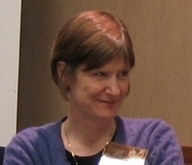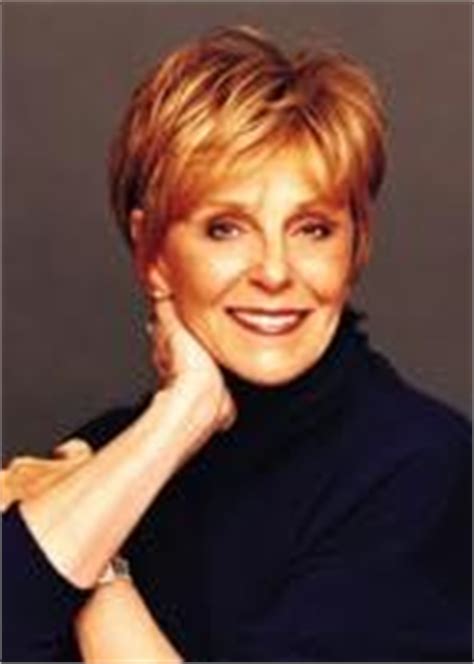A Quote by Ayn Rand
She thought how strange it would be if she ever said 'Hello' to him. One did not greet oneself each morning.
Related Quotes
She imagines him imagining her. This is her salvation. In spirit she walks the city, traces its labyrinths, its dingy mazes: each assignation, each rendezvous, each door and stair and bed. What he said, what she said, what they did, what they did then. Even the times they argued, fought, parted, agonized, rejoined. How they’d loved to cut themselves on each other, taste their own blood. We were ruinous together, she thinks. But how else can we live, these days, except in the midst of ruin?
And you're not leaving," she said. "Promise me." It was as if she had asked him to promise to keep breathing, to notice sunshine, to permit the spinning of the earth. What choice did he have? Even if he left her, she would be camped in his heart, an insistent and willful presence. She would match her strides to his on any journey he ever took; she would lie beside him on any bed. Amalie, he said, "that's the easiest promise I've ever had to make.
Back and forth she went each morning by the river, spring arriving once again; foolish, foolish spring, breaking open its tiny buds, and what she couldn’t stand was how—for many years, really—she had been made happy by such a thing. She had not thought she would ever become immune to the beauty of the physical world, but there you were. The river sparkled with the sun that rose, enough that she needed her sunglasses.
She smiled at him. “How did you know just what I’d want to see?” “How could I not?” he said. “When I think of you, and you are not there, I see you in my mind’s eye always with a book in your hand.” He looked away from her as he said it, but not before she caught the slight flush on his cheekbones. He was so pale, he could never hide even the least blush, she thought — and was surprised how affectionate the thought was.
[Short Talk on Sylvia Plath] Did you see her mother on television? She said plain, burned things. She said I thought it an excellent poem but it hurt me. She did not say jungle fear. She did not say jungle hatred wild jungle weeping chop it back chop it. She said self-government she said end of the road. She did not say humming in the middle of the air what you came for chop.
"She (Minnie Ruth Solomon) was unusual because even though I knew her family was as poor as ours, nothing she said or did seemed touched by that. Or by prejudice. Or by anything the world said or did. It was as if she had something inside her that somehow made all that not count. I fell in love with her some the first time we ever talked, and a little bit more every time after that until I thought I couldn't love her more than I did. And when I felt that way, I asked her to marry me . . . and she said she would."
Th-there," she sobbed. "it dragged him to the Italian gardens. He managed to elude its maw at first, but it harried him through the paths. No matter how much I screamed, it would not put him d-down!" She burst into a fresh wave of tears. "You screamed," will said. "Is that all you did?" "I screamed a great deal,." Tatiana sounded injured. She drew fully away from Will and fixed him with a green gaze. "I see you are as ungenerous as you ever were.
(...)Did she really tell Roddy Carstairs she could outshoot him with his own pistol?" "No," Jason said dryly. "She told him that if he made one more improper advance to her, she would shoot him- and if she missed, she would turn Wolf loose on him. And if Wolf didn't finish the job, she had every faith I would." Jason chuckled and shook his head. "It's the first time I've been nominated for the role of hero. I was a little crushed, however, to be second choice after the dog.
She had taken to wondering lately, during these swift-counted years, what had been done with all those wasted summer days; how could she have spent them so wantonly? I am foolish, she told herself early every summer, I am very foolish; I am grown up now and know the values of things. Nothing is ever really wasted, she believed sensibly, even one's childhood, and then each year, one summer morning, the warm wind would come down the city street where she walked and she would be touched with the little cold thought: I have let more time go by.
She looked at him then, but his image blurred behind tears that swelled into her eyes. She must leave. She must leave this room, because she wanted to hit him, as she had sworn she never would do. She wanted to cause him pain for taking a place in her heart that she wouldn't have given him if she'd known the truth. "You lied to me," she said. She turned and ran from the room.
Percy, meet Gladiola. Gladiola, Percy." I stared at Annabeth, figuring she'd crack up at this practical joke they were playing on me, but she looked deadly serious. "I'm not saying hello to a pink poodle," I said. "Forget it." "Percy," Annabeth said. "I said hello to the poodle. You say hello to the poodle." The poodle growled. "I said hello to the poodle.
She saw him the first day on board, and then her heart sank into her shoes as she realized at last how much she wanted him. No matter what his past was, no matter what he had done. Which was not to say that she would ever let him know, but only that he moved her chemically more than anyone she had ever met, that all other men seemed pale beside him.
Hello, Harry!” she said. “Er — my name’s Barny,” said Harry, flummoxed. “Oh, have you changed that too?” she asked brightly. “How did you know — ?” “Oh, just your expression,” she said. Like her father, Luna was wearing bright yellow robes, which she had accessorized with a large sunflower in her hair. Once you got over the brightness of it all, the general effect was quite pleasant. At least there were no radishes dangling from her ears.




































